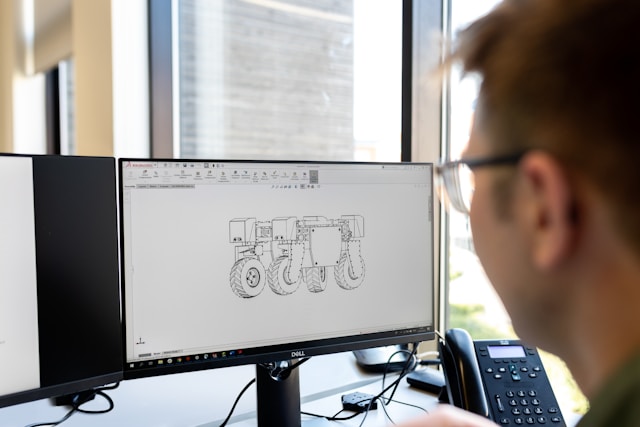Careers
What is Engineering?
Engineering is what makes things work. Everything that surrounds you that is built has involved an engineer. Design, manufacturing, building, assembly, and testing are all elements that require engineering expertise.
You will find engineers working on advanced mechanics, creating new materials, investigating alternative fuels, constructing skyscrapers or developing clean water systems. Engineers use maths and science to achieve extraordinary things and find solutions to some of the world’s most pressing issues.
You can follow several different routes into engineering, the most notable of which being apprenticeships and degrees. On this page you can find resources to help you decide your next steps.
Useful Subjects
Engineering relies on mathematics, science (often physics), and subjects such as Design & Technology (D&T), computing, electronics, and construction. Typically, one or more of these subjects (or relevant T Levels) are required for studying engineering at the university level. Additional subjects can be beneficial for specific engineering branches; for instance, geography for civil and environmental engineering, chemistry for chemical and biomedical engineering, art and design for product design and engineering, and psychology for understanding human perspectives.

Studying Engineering
University studies in engineering offer a broad array of specialisations, including mechatronics, computer science, or automobile engineering. Students will be able to choose from a wide range of specialisms, such as civil engineering, computer science, or automobile engineering to name a few. An engineering degree will help give you the skills and knowledge to become an engineer in the specialist area that you decide to pursue.
If taken full-time, Undergraduate degrees generally take 3 to 4 years to complete. Some degrees are offered with a year in industry or abroad.
Engineering graduates will be presented with loads of opportunities to work in all sorts of industries. Here are some examples of jobs that engineering graduates can apply to:
- Marine engineer
- Automotive engineer
- Mechanical engineer
- Biomedical engineer
- Software engineer
- Civil engineer
- Chemical engineer
- Materials engineer
- Technical sales engineer
- Petroleum engineer
In order to help choose the university degree right for you, research and thought is extremely important. Some of the sites linked below are very good starting points.
Apprenticeships
An apprenticeship in engineering provides a hands-on, work-based entry into the field. It allows you to acquire qualifications and skills while earning a salary and avoiding tuition fees. Higher level degree apprenticeships can lead to Bachelor’s Degrees as part of the apprenticeship, catering to those who prefer gaining work experience over full-time university study. Numerous companies nationwide offer engineering apprenticeships, including those listed below through APPEG’s sponsors.


